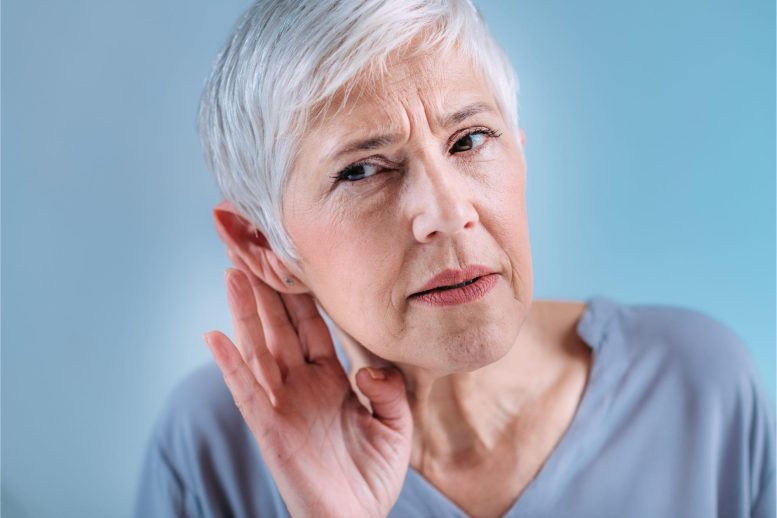
Hearing loss refers to a decline in the ability to hear sounds, either partially or completely. It can be caused by a variety of factors such as exposure to loud noise, aging, infection, and certain medical conditions.
Approximately 430 million people globally suffer from disabling hearing loss, and in the United States alone, around 37.5 million adults report difficulty hearing. Hearing loss can occur when any part of the ear or the nerves that transmit sound to the brain do not function properly.
For example, damage to the hair cells in the inner ear can lead to hearing loss. According to Dr. Amrita Iyer, a researcher at Baylor College of Medicine and lead author of a new study published in eLife, “these cells allow the brain to detect sounds.”
Hair cells are generated during normal development but this ability is progressively lost after birth as mammals mature. “When hair cells are lost in mature animals, the cells cannot be naturally regenerated, which can lead to permanent hearing loss,” Iyer explained. “In the current study, we looked closer into the possibility of promoting hair cell regeneration in mature animals using cell reprogramming. Our approach involved the overexpression of various transcription factor combinations.”
Transcription factors promote the expression of certain genes and prevent the expression of others. By changing the pattern of gene expression, the researchers hoped to lead cells to a state in which they would regenerate hair cells in mature animals similar to what happens during development.
“We compared the reprogramming efficiency of the hair cell transcription factor ATOH1 alone or in combination with two other hair cell transcription factors, GFI1 and POU4F3, in mouse non-sensory cells in the cochlea, the part of the inner ear that supports hearing,” Iyer said. “We did this at two timepoints – eight days after birth and 15 days after birth, assessing the extent of hair cell regeneration in mice.”
To study the structure of the hair cell bundles generated by reprogramming, Iyer collaborated with Dr. Yeohash Raphael’s lab at the University of Michigan to perform scanning electron microscopy imaging on the cochleae of mice conditionally overexpressing these transcription factors. The images clearly showed that the hair cell bundles were in accordance with what is observed on inner hair cells during development. Further studies showed that these cells also had some characteristics that suggested that they were capable of sensing sound.
“We found that although expressing ATOH1 with hair cell transcription factors GFI1 and POU4F3 can increase the efficiency of hair cell reprogramming in older animals compared to ATOH1 alone or GFI1 plus ATOH1, the hair cells generated by reprogramming at eight days of age – even with three hair cell transcription factors – are significantly less mature than those generated by reprogramming at postnatal day one,” Iyer said. “We suggest that reprogramming with multiple transcription factors is better able to access the hair cell differentiation gene regulatory network, but that additional interventions may be necessary to produce mature and fully functional hair cells.”
These findings are key to advancing the existing understanding of the mammalian inner ear hair cell regeneration process. From a therapeutic standpoint, transcription factor-mediated reprogramming and the underlying biology associated with its function may enable fine-tuning of current gene therapy approaches for long-term hearing loss treatment.
Reference: “Cellular reprogramming with ATOH1, GFI1, and POU4F3 implicate epigenetic changes and cell-cell signaling as obstacles to hair cell regeneration in mature mammals” by Amrita A Iyer, Ishwar Hosamani, John D Nguyen, Tiantian Cai, Sunita Singh, Melissa M McGovern, Lisa Beyer, Hongyuan Zhang, Hsin-I Jen, Rizwan Yousaf, Onur Birol, Jenny J Sun, Russell S Ray, Yehoash Raphael, Neil Segil and Andrew K Groves, 29 November 2022, eLife.
DOI: 10.7554/eLife.79712
The project was supported by the following grants: RO1 DC014832, R21 OD025327, DC015829 and a Hearing Restoration Project Consortium award from the Hearing Health Foundation. The project was also supported by funding from a CPRIT Core Facility Support Award (CPRIT-RP180672), NIH grants (P30 CA125123, S10 RR024574, S10OD018033, S10OD023469, S10OD025240 and P30EY002520), the R. Jamison and Betty Williams Professorship, the University of Michigan College of Engineering and NSF grant #DMR-1625671.

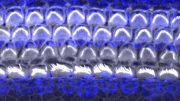
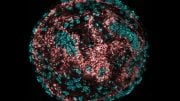
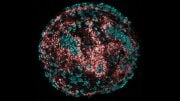
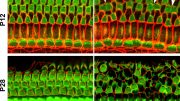
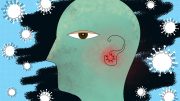
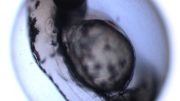
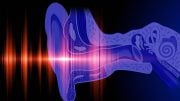
Thank you for your great efforts. I am also one of the hearing loss patient. I don’t want to use hearing aids. I just wanted to know for the cure only. Please try hard scientists so that we can recover our hearing problem with the help of GOD.
Salute and bundles of thanks my hearing expert scientists. Keep it up dear team
Thank you for your information. I am looking for a better hearing loss treatment in South Africa. I am based in South Africa. I am also hearing loss I have 3 different sound noise in my ears. Want to know what can make it better for ears? Please no spammer.
thank you for this information… my hearing loss was initiated at age 28 due to tobramycin toxicity to treat osteomyelitis and has continued to worsen likely due to genetic factors… i began wearing hearing aids at age 35. now at age 68, and for some time, correcting my hearing to allow adequate understanding of speech became ineffective and for the last few years, even with wearing bilateral hearing aids of high quality, understanding speech adequately persists. i believe, like many others, i am an excellent candidate for this treatment and hope it becomes available soon. if your research is successful it would positively impact the lives of millions of people. thank you, thank you for your efforts! 🙂
My name is Christopher langdon ,I am 33 years old and I was born with my hearing problem, my mom has it my grandma has and and her father before her, I struggled my whole life being picked on in school for having hearing aids , I’ve gotten over it now but it has given me such a poor quality of life with the choices I’ve made giving up, I’m use to this hence I have never had good hearing but if I’m ever needed for someone to do testing on I volunteer my self not for my personal gain but to help science discover how to help others , I trust in science and what your abilities are , I know that the sky is not the limit ,there are no limits to science , humans limit them selves , with science I believe humans can live forever one-day with optimal health , so I’m at your dispense if you need me , thank you science for everything you have done ..my cell phone number is 236-258-1151